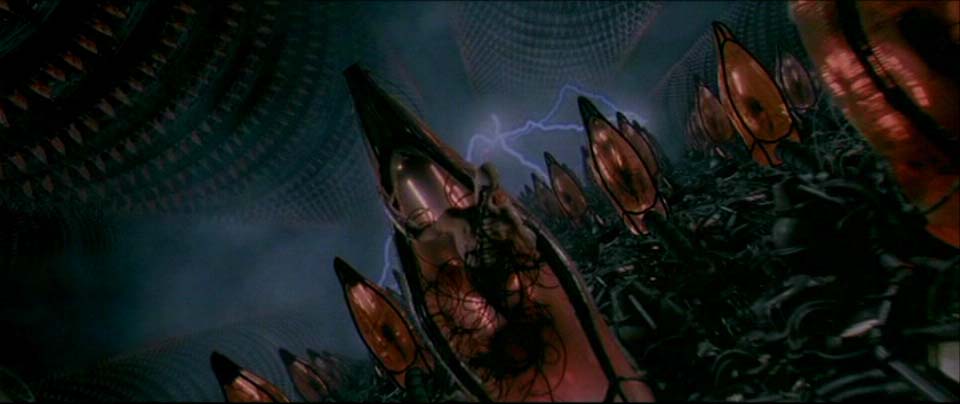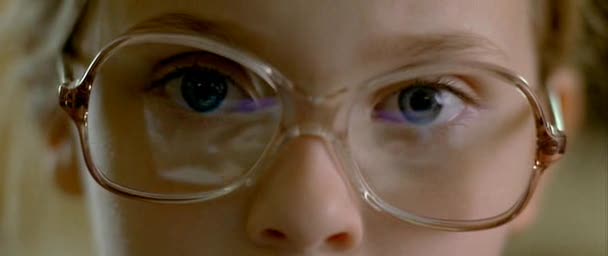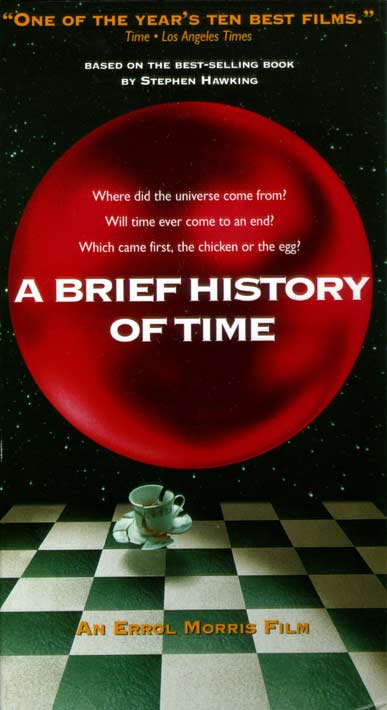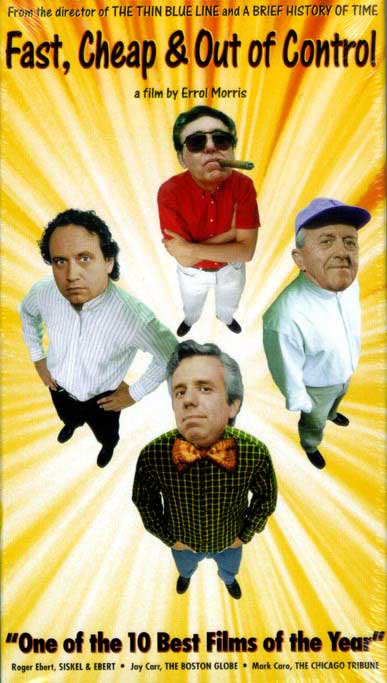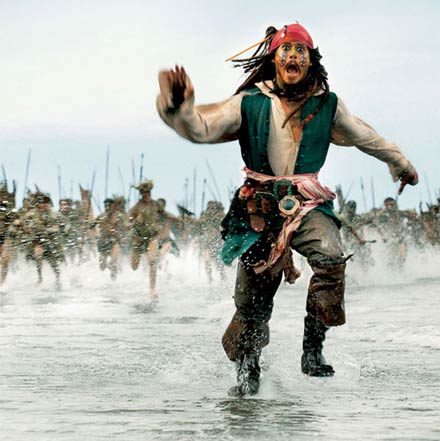What if we selected tiny parts of “Fast, Cheap & Out of Control” to apply to our lives, rather than the whole thing, and interpret each of those in any way that makes sense? Perhaps what makes this film so unique is that there are endless possibilities for such interpretation. The concepts presented are so much fun to toy with. Perhaps if I just keep musing in subsequent blog posts I’ll eventually say everything I want to about this….but it may take the rest of my life. I think I’m in love with this movie.
Thanks to a late night conversation with Tyler, I now have something to blog about. Which am I? The lion in a cage, thinking that the outside world is the true cage? The robot, merely the next step in evolution? How about a naked mole rat, working blindly towards a greater societal benefit? Or perhaps a plant sculpture, battered by the elements and always trying to break free of the mold, barely kept in line by an aging gardener?




My first answer, and the one I’m going to stick with for now, is that I’m a headless giraffe-shaped shrubbery. Broken by a storm, it will take me years to grow back, and in the meantime my gardener will fade away, leaving me entirely alone. Actually, that is incredibly depressing. But are the alternatives much better? Perhaps I’d rather be damaged than deceived, like the lions, mindless like the mole rats, or transient like the robots. Am I a stepping stone for the future, a part of a greater whole, an oblivious prisoner? I think I’d much rather be a force of nature, even undergoing the initial trimming for a chance for the real freedom that each of the others lacks.
Now, if Tyler is right about each one representing a model of God, where does this view of myself fit in? The lion tamer represents organized religion. Yep, staying well away from that. The mole rat guy toys with his beloved pets a little, but mostly enjoys observing them. An unintrusive but loving God? The robot man deciding that humans are just a step between past and future evolutions…science? That last one feels both depressing and hopeful at the same time. We’re just here for a little while and aren’t particularly important. But look what may come next! There’s always going to be something better.
But I still prefer my lovely old gardener, diligently trimming topiary but knowing that he won’t be doing it forever. There isn’t anyone to come after him. All the plants want to grow in their own natural directions, and one day they will. They only need him for a little while, until they’re ready to be themselves. Though I’m not religious at all, I quite like that idea. Perhaps religion is best when it serves as an initial shaper for civilization, then fades quietly away once we’re ready to take our fates into our own hands.
Nothing lasts forever. Mole rats die, humans are replaced, nature takes its course. The only model that’s fighting this is the lion tamer. He’s trying so desperately to keep the lions and tigers under control in that cage. Every once and a while they lash out, not completely fooled. He tries to make everything last forever. When he realizes that he won’t, just as his predecessor didn’t, he finds and trains a replacement. He reassures himself that she will be all right. Everything will stay under control. He fights change. Fear is his emotion.
No, I’d much rather be in an overgrown, neglected, storm-battered garden. No cages, no carefully constructed habitats, and no terrifyingly foreign outer reaches of space. Moving in my own direction–not the tamer’s, not the watcher’s, and not the scientist’s. I’m not interested in being enclosed, even if I don’t notice it. I don’t want to exist as amusement for a greater power. And I especially don’t want to be a mere evolutionary phase.
So I am a headless giraffe-shaped shrubbery, ready to grow back in whatever direction feels right.


